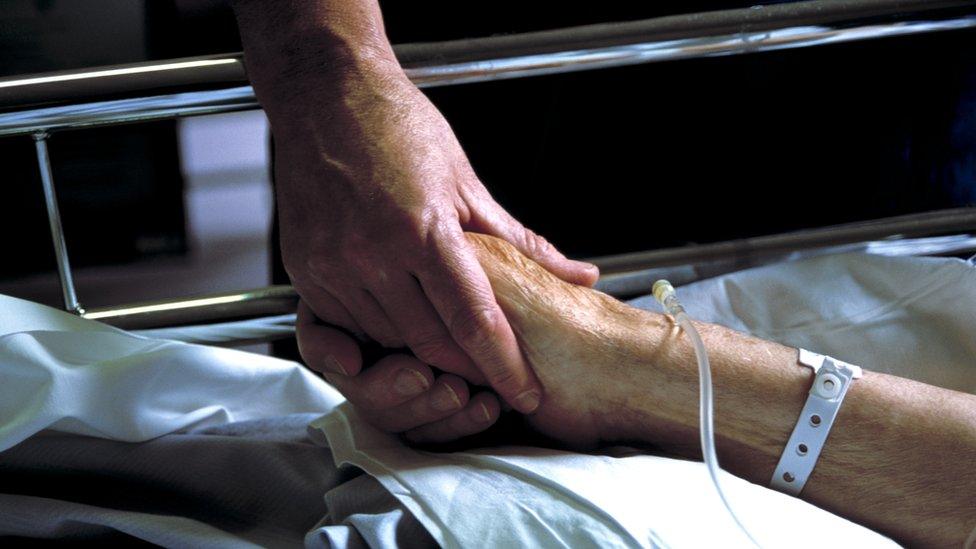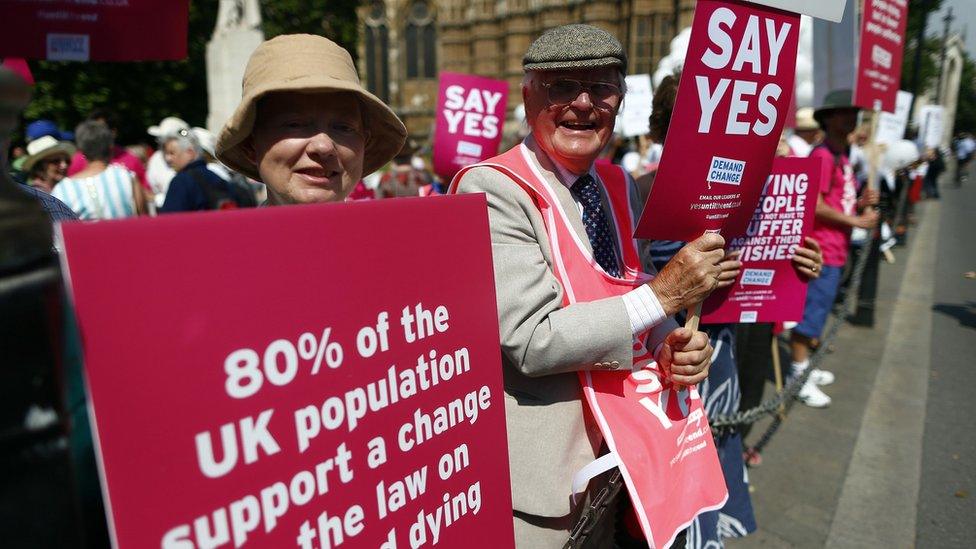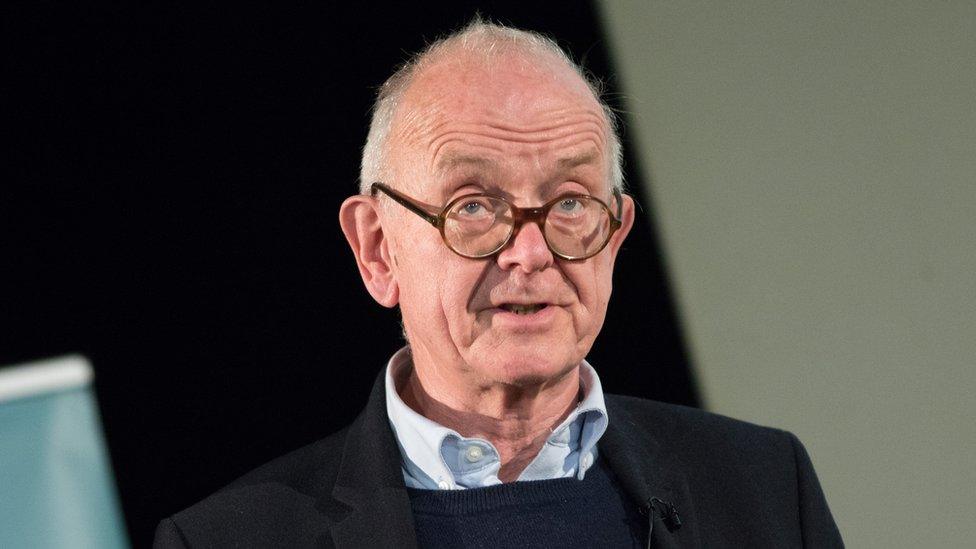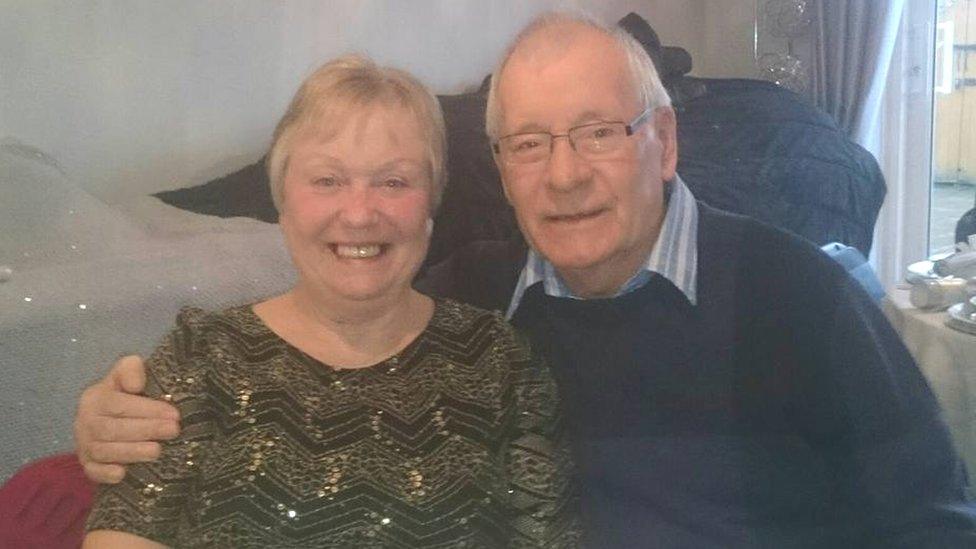Peers urged to reject bill to legalise assisted dying
- Published

Medical professionals and religious leaders have warned peers against backing a fresh attempt to relax the law on assisted dying.
A new bill to enable terminally ill adults to legally seek assistance to end their lives will be debated by the House of Lords on Friday.
Campaigners say a change in the law would give them greater control over how and when they die.
But opponents argue a change in the law would threaten vulnerable people.
The bill, proposed by independent peer Baroness Meacher, would amend legislation in England and Wales from 1961 that bans assisted dying.
Currently, those who judged to have assisted the suicide or attempted suicide of another person can be jailed for up to 14 years.
The proposed new law would enable adults who are of sound mind and have six months or less to live to be provided with life-ending medication.
The person wanting to end their life would have to sign a declaration approved by two doctors, which is signed off by the High Court.
Baroness Meacher has said her bill would help a "small but significant number of dying people avoid unwanted suffering at the end of life".
However, a group of 1,689 current and retired doctors, pharmacists and medical students has urged peers to reject it.
In an open letter to Health Secretary Sajid Javid, they said a change in the law would "threaten society's ability to safeguard vulnerable patients from abuse," and "undermine the trust the public places in physicians".
"It would send a clear message to our frail, elderly and disabled patients about the value that society places on them as people," they added.

An attempt to change the laws on assisted dying in 2014 saw supporters gather outside Parliament
The proposed law change has also attracted criticism from Archbishop of Canterbury Justin Welby, Roman Catholic Cardinal Vincent Nichols, and Chief Rabbi Ephraim Mirvis.
In a letter of their own addressed to peers, the religious figures registered their "profound disquiet" at the bill, arguing its proposed safeguards contained "practical inadequacies".
They wrote: "We acknowledge that Baroness Meacher is seeking the alleviation of suffering.
"This motivation we share wholeheartedly, but we disagree on the means advanced to address this very real concern.
"The aim of a compassionate society should be assisted living rather than an acceptance of assisted suicide," they added.
Previous failed bills
Baroness Meacher's proposed law is the latest in a series of bills suggested by parliamentarians to try and change the law on assisted dying in recent years.
The peer revealed that the death of a family member had left "an indelible mark", as she reflected on how a relative with liver cancer took their life more than 40 years ago.
She said: "I just thought, how lonely is that? How awful. And she can't have been certain that it would work. In fact, it did work. That left an indelible mark on me."
The proposal follows similar bills by Labour peer Lord Falconer and former Labour MP Rob Marris, both of which failed to become law.
As a private member's bill starting in the Lords, Baroness Meacher's bill is also unlikely to succeed because it has no priority to be debated in the Commons.
The Ministry of Justice says a change in the law "in an area of such sensitivity" should be a matter for MPs, not the government, to take a view on.
A similar bill aiming to legalise assisted dying in Scotland has also been tabled by the Liberal Democrat MSP Liam McArthur.
Related topics
- Published1 April 2021

- Published3 November 2020
